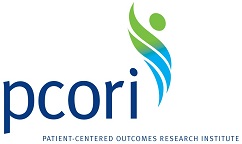 The Patient-Centered Outcomes Research Institute (PCORI) has granted $50 million for the development of four comparative clinical effectiveness research (CER) studies dedicated to the diagnosis and treatment of hepatitis C virus (HCV) infection. The funding is the result of the Board of Governors of PCORI’s approval of a PCORI Funding Announcement (PFA), which included these grants.
The Patient-Centered Outcomes Research Institute (PCORI) has granted $50 million for the development of four comparative clinical effectiveness research (CER) studies dedicated to the diagnosis and treatment of hepatitis C virus (HCV) infection. The funding is the result of the Board of Governors of PCORI’s approval of a PCORI Funding Announcement (PFA), which included these grants.
The new funding also includes the issuance of two PFAs totaling $150.7 million, directed to the development of a second phase PCORnet PCORI’s initiative, meant to improve health research efficiency all over the country. The project aims to accomplish this by enhancing the pool of patient and treatment data from electronic health records and other resources. The institute is particularly focused on HCV, as the disease is estimated to affect about 3 million patients in the United States alone, and an alarming majority of them remain undiagnosed, with a third eventually developing associated chronic liver conditions.
“HCV is a major health threat that can have devastating consequences for infected people and their families,” said PCORI Executive Director, Joe Selby, MD, MPH. “Recently approved medications are immensely promising and offer vast improvements over previous therapies but as yet there’s no ‘real-world’ evidence of their long-term effectiveness nor comparative evidence to help inform decisions about screening diagnosis and treatment of HCV.”
“In response to the feedback we’ve received from many healthcare stakeholders and with the approval of our Board PCORI will issue a funding announcement in the next few months to support CER that will build the evidence needed to better inform practice and address questions important to patients,” Selby added.
The approval of the board, and the consequent development of HCV-focused PFA, are in line with the workshop conducted with multi-stakeholders by PCORI last October that identified four health concerns as high priorities nationwide. These include seeking methods of screening and assessing strategies to improve the rates of disease detection, evaluating alternative methods to providing healthcare to high-risk populations, examining trade-offs between long-term virologic response and adverse effects related to different regimens of new oral antiviral medications, and comparing the pros and cons of beginning therapy right after diagnosis instead of conducting active surveillance and starting therapy only with the first signs of liver disease progression or infection.
In addition to the four grants, PCORI also disclosed they will be announcing two other projects to be funded, within the next stage of PCORnet’s development, funding up to 13 of the Clinical Data Research Networks (CDRNs). It will conclude the 22 Patient-Powered Research Networks (PPRNs) that make up PCORnet, with the institute granting $8.75 million for each CDRN, as well as $1.68 million for each PPRN over the three-year second phase of PCORnet’s development, to start next September, after the completion of an 18-month first phase.

